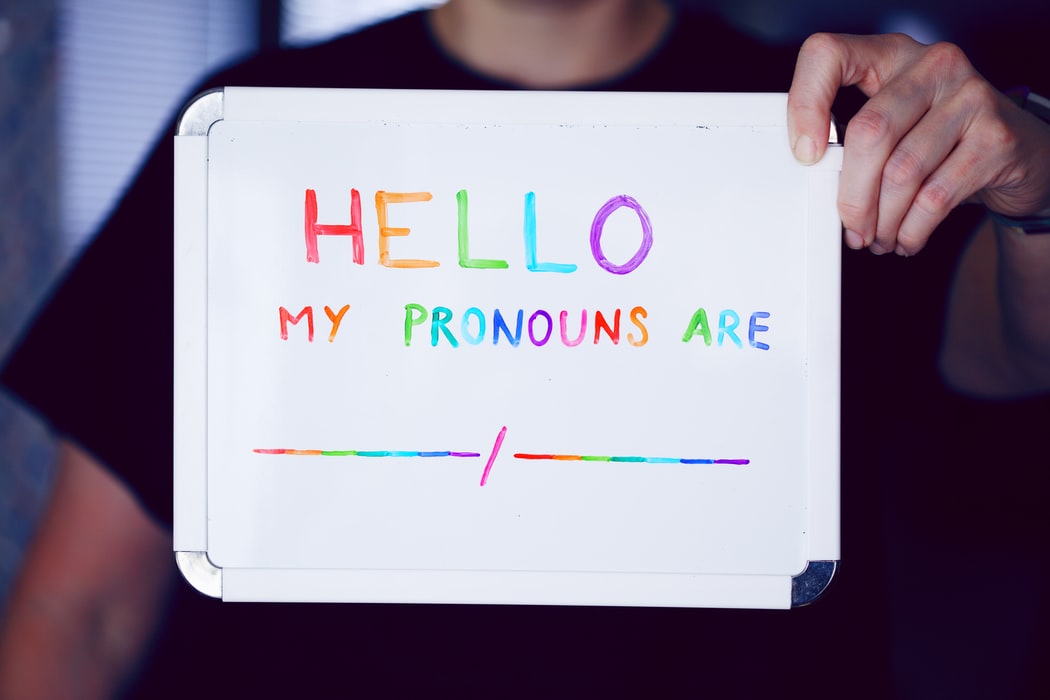Blog
How you can make our world more gender inclusive
As humans, we seek identity. And a large part of this? Our gender identity.
But what if the gender we’re assigned at birth misaligns with who we truly are on the inside? And what if who we are on the inside is misunderstood and misrepresented by those close to us… and society at large?
Unfortunately, this is an experience many individuals identifying as non-binary, transgender – or one of the many other gender diverse identities – face every day.
So how can we all make a difference to the lives of gender minorities? By understanding the importance of our words – and how much they can mean to everyone’s sense of self.
But first, gender and sex – there’s a difference
Sex is biological. It’s determined by your reproductive organs. This is either female, male, or both if you’re intersex.
But gender is different. It’s how you identify, regardless of the body you were born in.
In western society, gender is often recognised in two groups – mirroring biological sex. It’s known as the gender binary. Males and females, boys and girls, women and men.
Unfortunately, this gender binary doesn’t reflect reality.
Some people are transgender, born female and identify as male, and vice versa.
Some people are gender fluid and identify as both male and female.
Some people are non-binary and don’t identify as male or female. And these only scratch the surface.
Small words create big impact
Being gender diverse in a society geared towards a gender binary is tough.
Being misgendered and misrepresented is an all-too-common experience for those who don’t fit into the gender binary. And when we don’t feel our true identity is being understood and accepted, this can create a world of anguish.
That’s why we need to be mindful of our words. When used correctly, they can be a powerful source of affirmation and respect. Here’s a good place to start.
- Use correct pronouns
Pronouns are small words that express so much of our gender identity. And being correctly gendered can mean so much to an individual – giving them a sense of belonging and acceptance.
The most common pronouns used are: she/her, he/him and they/them. Some people also list two sets of pronouns. This simply means they are happy to be identified by either (e.g. they/them and she/her).
If someone is open about their preferred pronouns, you should do your best to use them correctly. It may not be a smooth transition (you may have to correct yourself a couple of times), but it won’t be long before your brain adapts.
- Never assume
It’s easy to assume gender. But making assumptions can lead to harmful misgendering.
Instead, assume gender is unknown by using the gender-neutral pronouns they/them. Many of us already do this when we know little about someone we’re referring to.
Example: Is your friend coming? Let me know when they arrive.
- Listen to what others are saying
To be gender inclusive means to be perceptive. If you’re unsure of what pronouns to use, keep an ear out for how others refer to them, and how they refer to themselves.
Although everyone has a right to privacy, it’s becoming commonplace for people to disclose their pronouns publicly on social media and emails. So check it and don’t forget it.
- Express your own identity
Disclosing pronouns isn’t just for the gender diverse. To avoid assumption altogether, it’s a good idea to share your preferred pronouns where possible – if you feel comfortable. This might be on your LinkedIn profile or your email signature.
Even if you are cisgender – someone who identifies with the sex they were born with – your participation can help normalise gender diversity.
- Avoid gendered terms
Gendered terms are those that reflect one of the genders in the gender binary. For example, ‘policeman’ and ‘chairman’.
In most cases, the meaning of gendered terms is irrelevant. Yet our language is saturated with them.
Unfortunately, gendered terms set a tone of gender exclusion and hierarchy.
So try to embrace more gender neutral terms, such as ‘police officer’ or ‘chairperson’.
And when referring to family roles, consider whether it’s more appropriate to use parent, child, sibling and partner.
A small shift in the words you use can make a big difference. So keep your language in mind. And respect, acknowledge and understand all gender identities. After all, we all deserve to be accepted – no matter how we identify.

